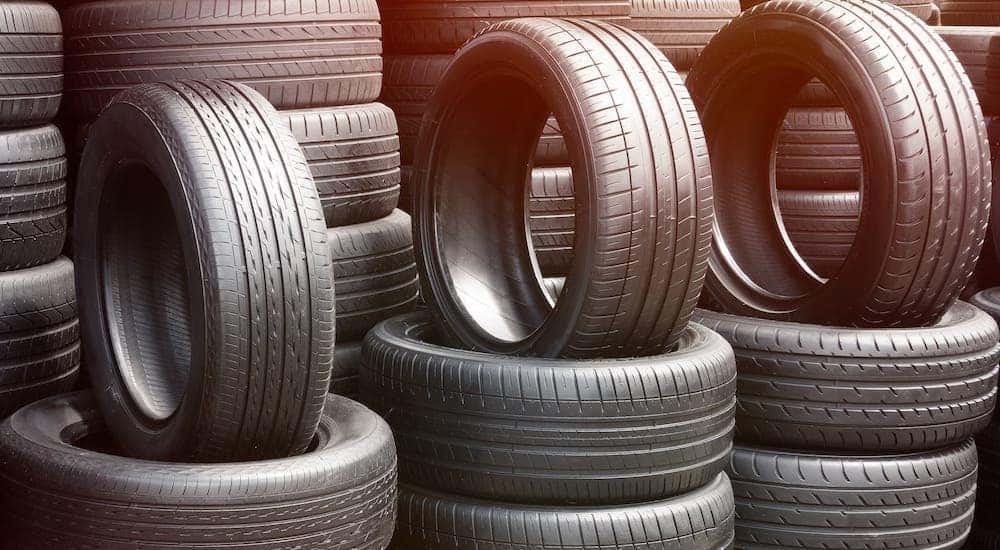The Ecological Advantages of Proper Tire Maintenance
Maintaining correct tire treatment is commonly forgotten, yet its effect on the environment is extensive. From minimizing gas intake to reducing emissions result, the benefits are far-ranging. Appropriate tire maintenance not just extends the life expectancy of tires but additionally reduces land fill waste and adds to enhanced air top quality. The interconnectedness of these advantages highlights the critical function that simple upkeep practices can play in advertising environmental sustainability.
Decreased Fuel Intake
Improving tire upkeep techniques can lead to a considerable reduction in fuel intake for vehicles. According to the U.S. Division of Energy, underinflated tires can reduce gas mileage by 0.2% for every 1 psi decrease in pressure in all 4 tires.
Along with tire stress, routine tire turnings and alignments additionally play a vital duty in fuel efficiency. Unevenly worn tires can raise fuel consumption as the engine works harder to maintain rate and grip. By keeping correct placement and revolving tires at recommended intervals, drivers can guarantee even put on and extend the life of their tires, inevitably saving fuel and minimizing their carbon footprint.
Extended Tire Lifespan
Extending the life-span of tires is a vital aspect of reliable vehicle maintenance techniques that can yield expense savings and environmental advantages over time. By properly maintaining tires, drivers can significantly lengthen their functionality, reducing the regularity at which brand-new tires need to be produced and old ones dealt with. This not just saves useful sources however additionally lessens the energy and exhausts connected with tire manufacturing and disposal processes.
Regularly checking tire stress, turning tires, and ensuring appropriate alignment are crucial steps in extending tire life expectancy. Appropriate tread deepness is essential for optimum grip and security, yet it likewise contributes in for how long tires can be made use of before needing substitute. Additionally, staying clear of hostile driving habits that accelerate tire wear, such as extreme stopping and sharp turns, can additionally boost tire longevity.
Eventually, raising the longevity of tires through aggressive maintenance not just profits the atmosphere by minimizing waste and saving sources but additionally leads to cost savings for car proprietors by delaying the requirement for brand-new tire acquisitions.
Reduced Exhausts Output
Effective tire upkeep practices add to a decrease in exhausts result, aligning with ecological sustainability goals in the automobile industry. Appropriately filled with air tires, frequently turned and lined up, can boost gas performance, hence reducing the general co2 exhausts from lorries. When tires are underinflated, the engine must work more challenging to propel the vehicle, resulting in boosted fuel consumption and higher emissions. By keeping optimal tire pressure levels, chauffeurs can assist alleviate these negative environmental impacts.
Moreover, properly maintained tires additionally enhance traction and decrease rolling resistance, further improving fuel performance. This, in turn, decreases the quantity of exhaust gases launched into the atmosphere. Additionally, making certain tires are appropriately inflated and lined up can extend the lifespan of the tires, decreasing the frequency of tire replacements and the associated environmental expenses of tire manufacturing and disposal.

Reduced Land Fill Waste
Provided the favorable impact of appropriate tire maintenance on minimizing discharges outcome, another substantial ecological advantage is the potential for decreased landfill waste. By ensuring that tires are properly pumped up, lined up, balanced, and rotated routinely, their life-span can be considerably extended.

Improved Air Quality
Enhancing air high quality via appropriate tire upkeep practices is an important facet of sustainable ecological stewardship. When tires are underinflated, they produce more rolling resistance, leading to boosted fuel usage and higher discharges of unsafe contaminants such as carbon monoxide and nitrogen oxides. Effectively filled with air tires not just improve fuel efficiency however likewise minimize the quantity of pollutants released right into the air.
Additionally, well-kept tires with correct step depth and positioning contribute to much safer motoring conditions, lowering the probability of accidents that can lead to the launch of additional contaminants into the atmosphere. By extending the life expectancy of tires through normal upkeep and turning, less tires are discarded too soon, lowering the environmental impact of tire disposal and manufacturing processes.
Verdict
In final thought, appropriate tire maintenance uses useful source many ecological advantages. By minimizing Get the facts fuel intake, extending tire life-span, decreasing exhausts result, lowering landfill waste, and improving air high quality, people can add to a healthier earth. These efforts not just benefit the environment yet also help to conserve resources and lower overall ecological effect. It is essential for people to focus on tire upkeep as a basic yet efficient method to safeguard the environment for future generations.
Correct tire maintenance not only expands the life expectancy of tires but additionally reduces garbage dump waste and adds to enhanced air quality - morris tire. By keeping proper positioning and revolving tires at recommended intervals, motorists can make certain even lengthen the life and use of their tires, inevitably saving fuel and reducing their carbon impact
By appropriately preserving tires, motorists can significantly extend their usability, reducing the frequency at which new tires need to be manufactured and old ones disposed of.Consistently checking tire stress, turning tires, and making certain correct alignment are essential actions in expanding tire life-span. In addition, ensuring tires are effectively pumped up and aligned can extend the life expectancy of the tires, reducing the regularity of tire substitutes and the associated ecological prices of tire manufacturing and disposal.